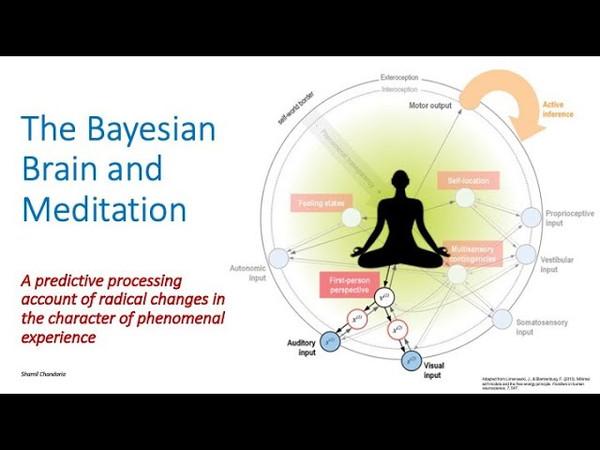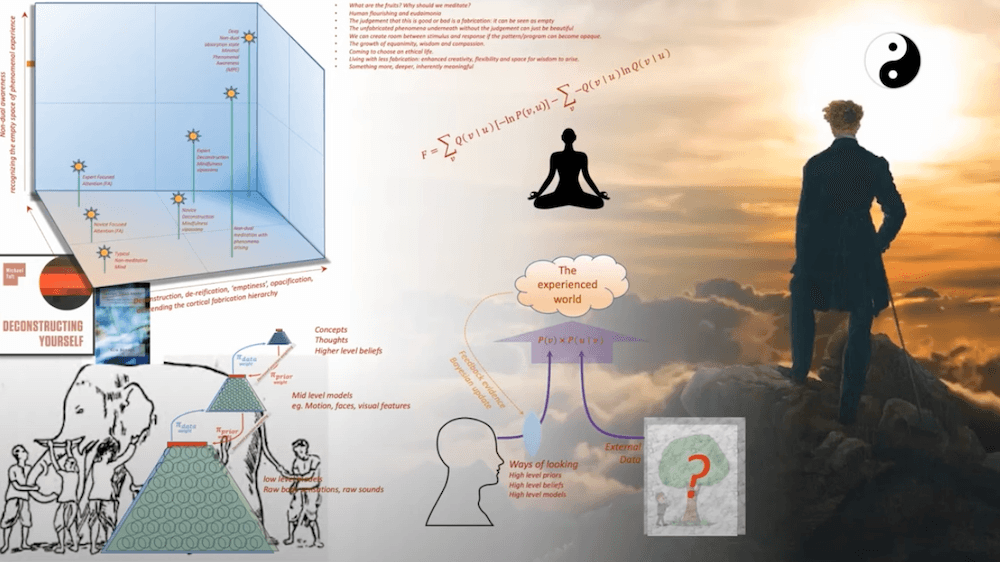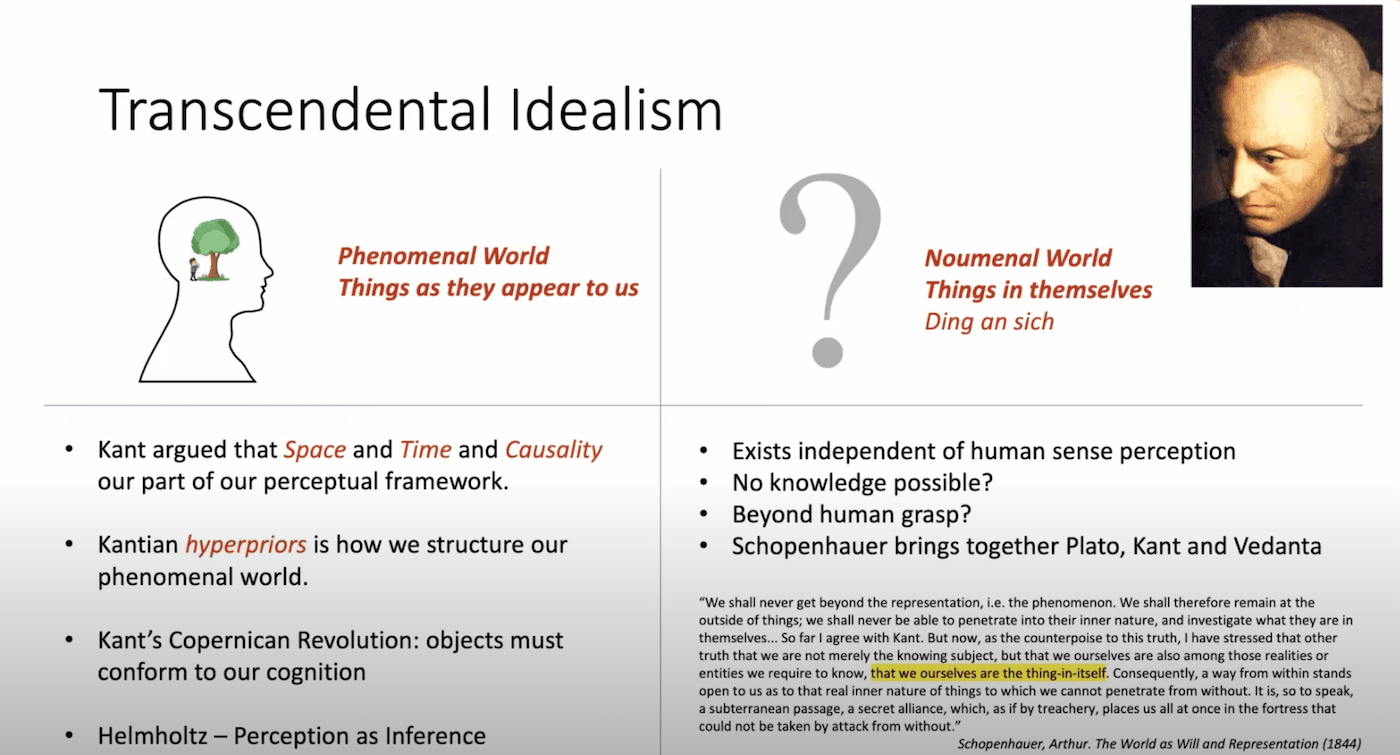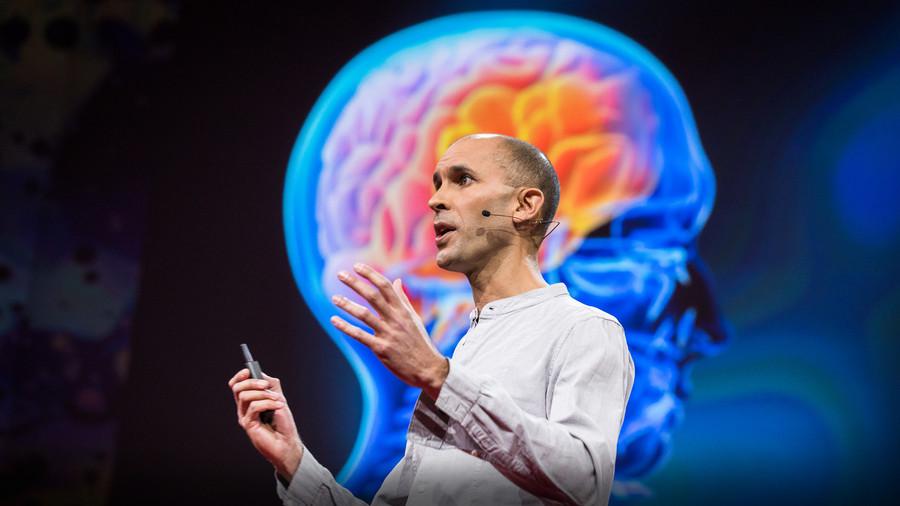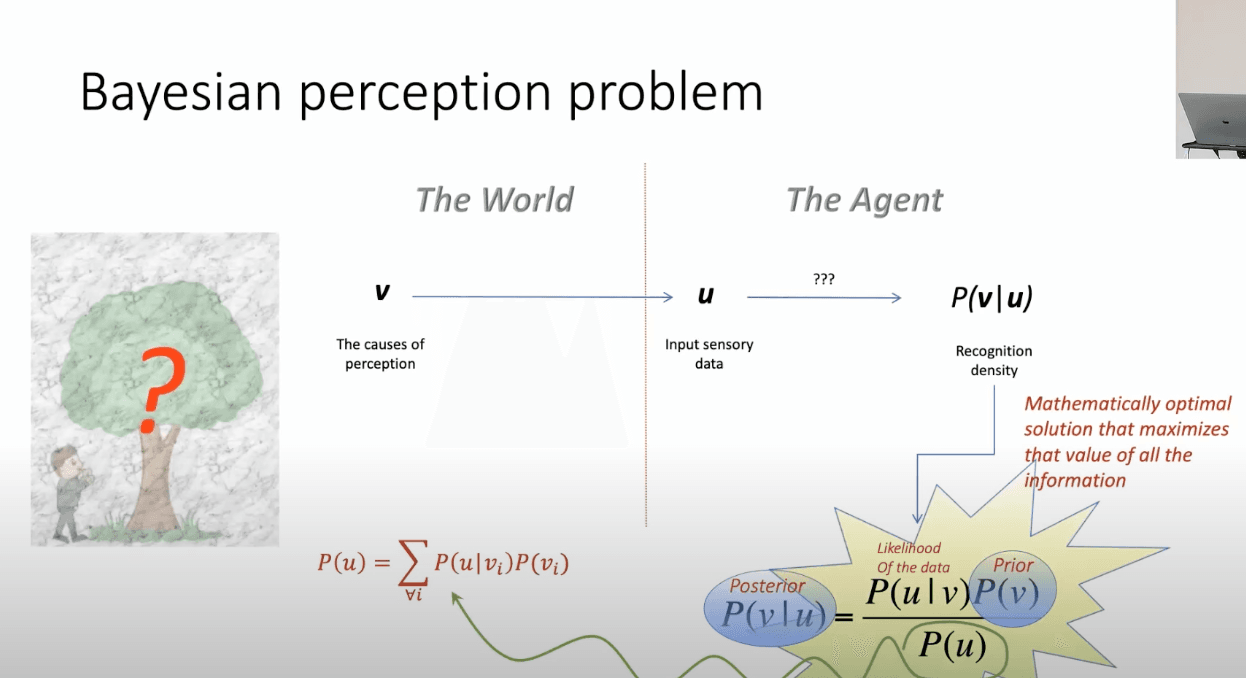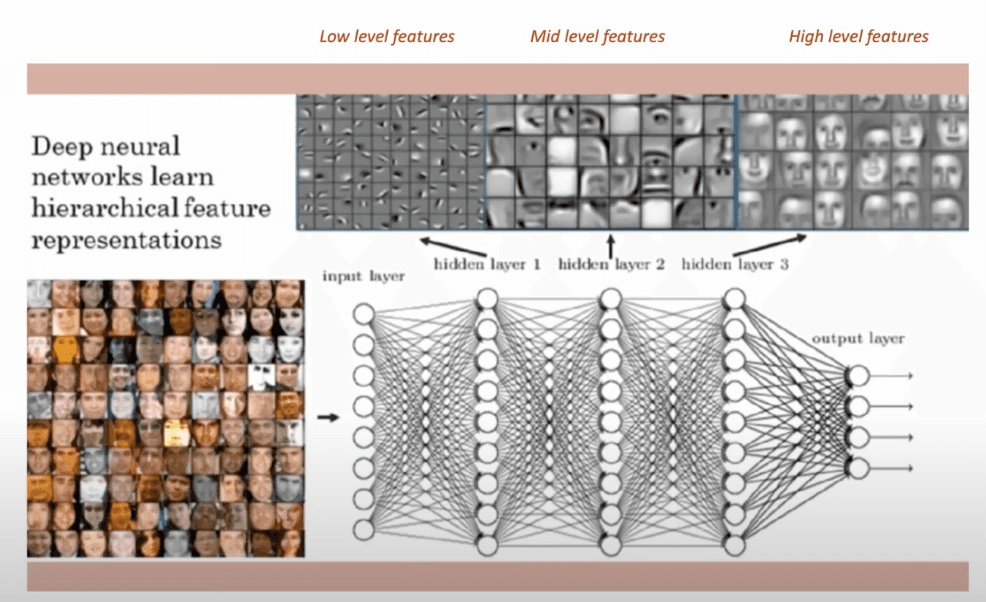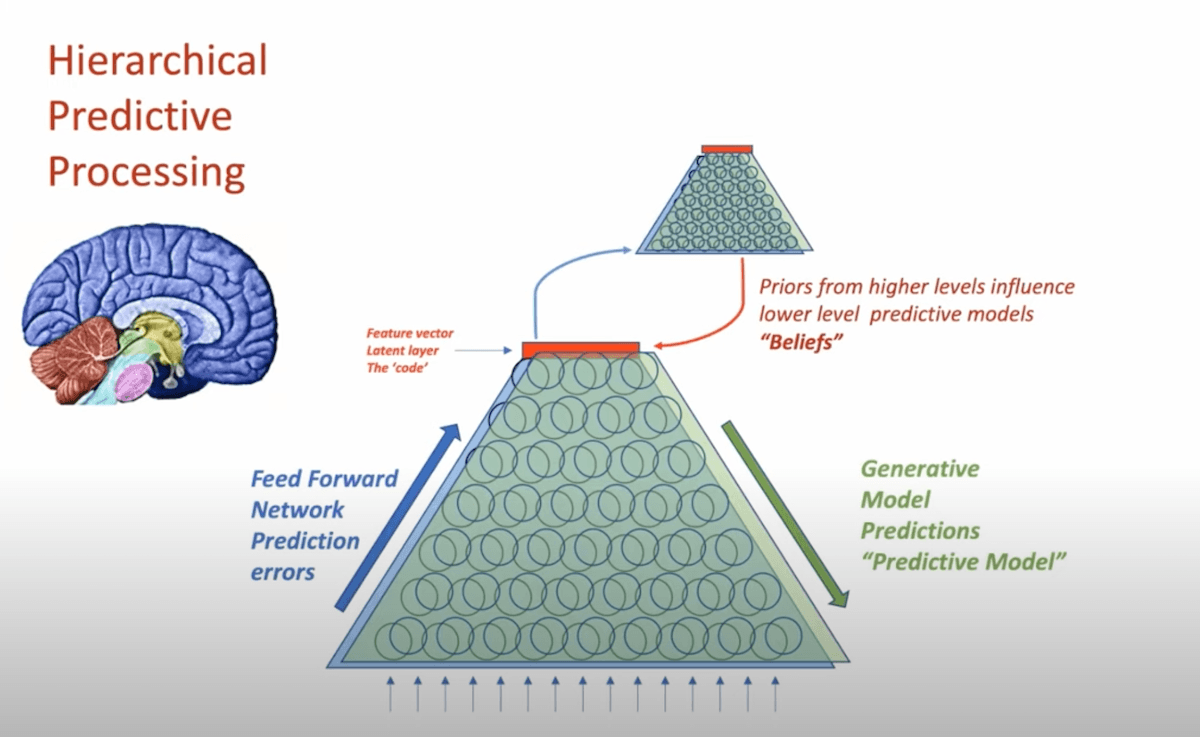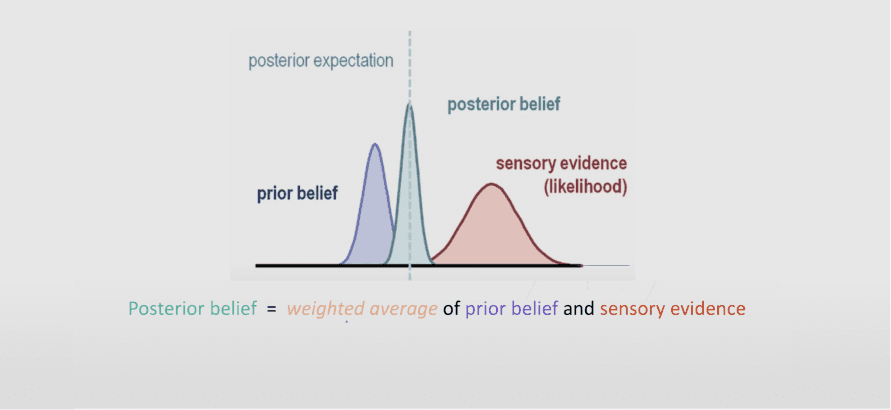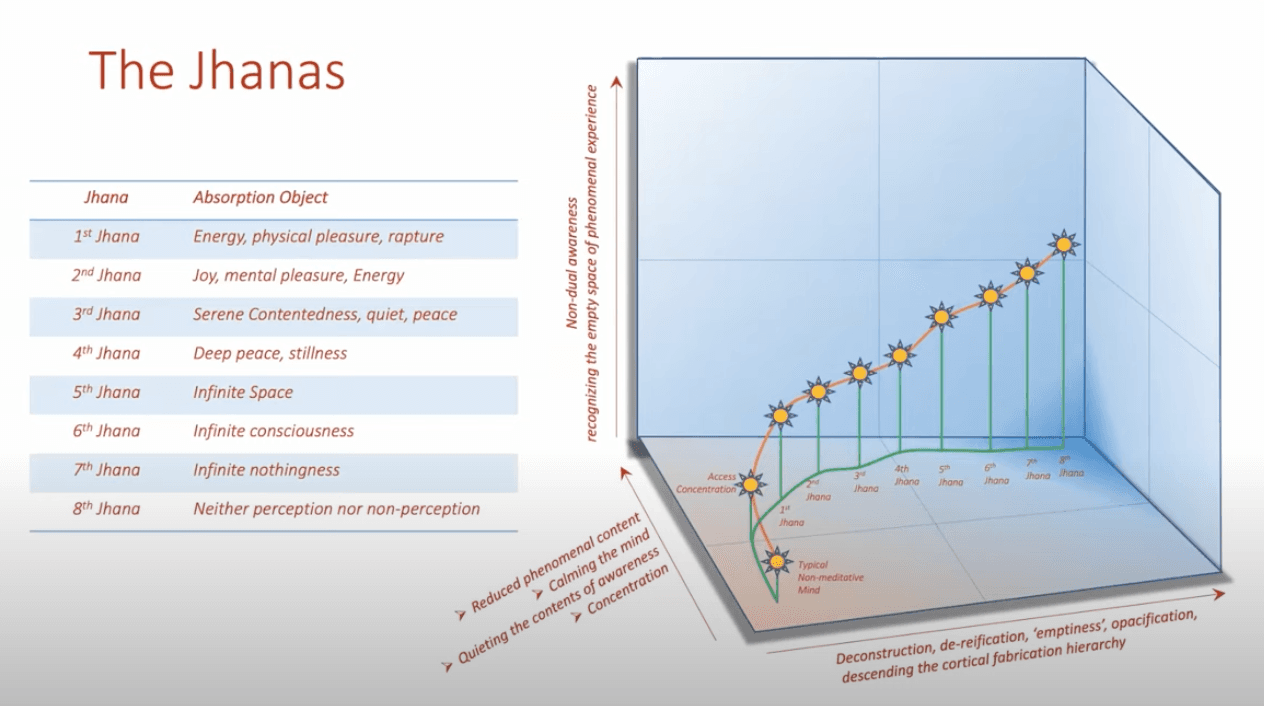The Bayesian Brain & Meditation
Curated from: Shamil Chandaria
Ideas, facts & insights covering these topics:
11 ideas
·3.46K reads
37
6
Explore the World's Best Ideas
Join today and uncover 100+ curated journeys from 50+ topics. Unlock access to our mobile app with extensive features.
Bayesian Brain & Meditation
The Bayesian brain hypothesises that our mind works like an AI predictive model. We don't experience our world directly, but we perceive it. Meaning we construct it using both our senses and our prior beliefs.
If this is true then meditation can act as a way to improve our experience of ourself and of the world. By making us aware of our biases and allowing us to change how we create the world. This is the proposition of Shamil Chandaria, one of the AI pioneers, having worked at DeepMind (now part of Google).
47
545 reads
Kant's Phenomenal World
Kant, the famous philosopher, postulated we never have an experience of the "real" world (the noumenal word). Our cognition does not conform to the world, but rather the world conforms to our cognition.
We never see the tree as it really is but rather experience our perception of the tree.
Kant argued that our minds are not simply passive receptacles for sensory information. Instead, we actively construct our experience of the world by filtering it through our hyper-priors (innate cognitive predispositions). Like our concepts of space & time, our categories & our moral principles.
51
402 reads
Perception is Inference
If we rely only on our senses we would notice we are seeing a small part of an object. Our eyes capture a small patch of colours but we see a bee on a flower. How does the brain construct this image from the minuscule sensory data?
One theory is our brains infer the most likely state of the world (coming up with a "best guess") given our current sensory data and our prior knowledge about the world.
44
339 reads
Bayesian Perception Problem
How does our brain perceive the world based given the noisy and incomplete sensory data?
- We have the World creating events.
- A small % of that reality creates sensory data.
- As Agents in the world, we perceive the World. Meaning ur brains have to come out with the best hypothesis for the features of the world given the sensory data.
Bayesian theorem is the optimal mathematical solution for this mathematical problem. A very computationally explosive problem. We can get an inspiration from AI systems that are addressing it.
45
309 reads
Neuronal Networks solution to the Bayesian Problem
Neural Networks (which are heavily used in AI) appear to be the solution to the complexity of the Bayesian Perception Problem. They break the problem in levels.
You feed a collection of images of faces to a neuronal network and it predicts:
- low-level features: edges and corners
- mid-level features: noses or eyes
- high-level features: facial details
Since this hierarchical predictions are computationally efficient, we can think our mind also solves the complexity of a Bayesian prediction by breaking up the problem in hierarchical levels.
43
261 reads
The Bayesian Brain Model
It is a hypothesis that our brain works through hierarchical predictive processing:
- the brain is constantly generating predictions about the world and then comparing those predictions to incoming sensory data
- the brain is organised into a hierarchy of processing levels, each of which generates predictions about the level below it. Ex: the highest level of the hierarchy might generate predictions about the overall scene that we are looking at, while lower levels of the hierarchy might generate predictions about specific objects or features in the scene.
44
248 reads
Our Bayesian Brain Hallucinates our Reality
What I believe I am experiencing right now is actually what I am experiencing (called a Posterior Belief). So our reality is weighted average of prior beliefs and sensory data.
These prior beliefs are acting like the hierarchical levels separating a neural network. These included, starting from the levels closer to the sensory data:
- sensations
- gesture, voices, happiness, disgust
- drawings, motions
- memory, math, faces
- reasoning, concepts
47
241 reads
Phenomenal Self Model
Not only we are hallucinating our world. We halucinate ourselves and we halucinate how our self integrates in the constructed world. This is based on:
- sensory integration
- our sense of agency
- experience of what it means to be "me"
- perspective
Ofcourse, in daily life we are not aware of our hallucinations. Meditation or psychedelics are ways to break through our model of ourselves.
46
215 reads
Meditation as Model Mind Hack
Meditation allows us:
- to over-emphasise our senses (as opposed to our priors) through attentional meditations (where we count our breaths for example)
- to become aware of our priors (higher level models in the Bayesian brain like our ethical foundations) and the ways we build reality through deconstruction type meditations like mindfulness
- to reconstruct ourselves through constructive meditations like love&kindness.
51
221 reads
Phenomenal Dimension of Meditation
If we place the 3 types of meditation of on a 3D chart we can plot the evolution of meditator from "monkey mind" to enlightenment. Just like the Jhanas, states of deep mental concentration and absorption that are cultivated in Buddhist meditation.
In short meditation:
- lowers the weight of the priors compared to our senses
- attenuates our high-level priors: beliefs, attitudes etc
- allows us to tweak our change our priors or create new ones
48
246 reads
IDEAS CURATED BY
Life-long learner. Passionate about leadership, entrepreneurship, philosophy, Buddhism & SF. Founder @deepstash.
CURATOR'S NOTE
Shamil is a former DeepMind employee. Based on his AI experience he proposes that our minds are operating similarly to an AI model.
“
Similar ideas
Read & Learn
20x Faster
without
deepstash
with
deepstash
with
deepstash
Personalized microlearning
—
100+ Learning Journeys
—
Access to 200,000+ ideas
—
Access to the mobile app
—
Unlimited idea saving
—
—
Unlimited history
—
—
Unlimited listening to ideas
—
—
Downloading & offline access
—
—
Supercharge your mind with one idea per day
Enter your email and spend 1 minute every day to learn something new.
I agree to receive email updates
